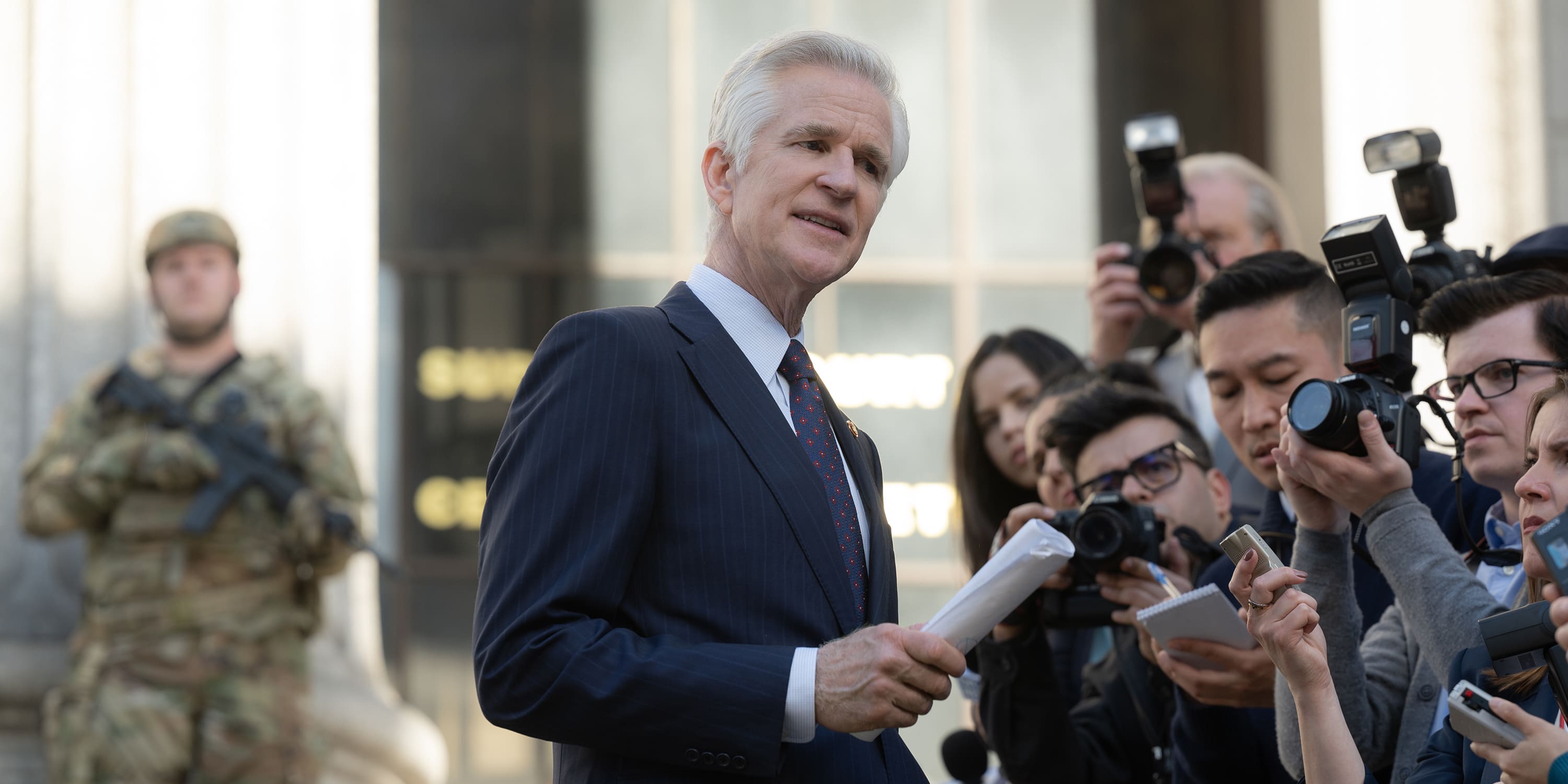Netflix’s ‘Zero Day’ is a thrilling political drama show that centers around a tragic yet captivating what-if scenario. Within the current socially fraught landscape, the nation takes a massive blow after a cyberattack introduces moments of chaos that lead to hundreds of deaths. Consequently, while fear and mistrust brew among the citizens, the government establishes a Commission tasked with the job of weeding out the people responsible for the attack. George Mullen, a former president with unwavering morals and humane flaws, gets appointed to head the Commission—much to the displeasure of others, including his daughter, Congresswoman Alexandra Mullen.
As a result, when an Oversight Committee is formed to ensure the investigation’s integrity, the House of Representatives speaker, Richard Dreyer, pushes for Mullen Junior to take over the steering wheel. Consequently, Alex and Richard become significant blunders in George’s narrative, each occupying a uniquely antagonistic role in the narrative. Their political standing enhances this contentious dynamic, adding further nuance to the story. SPOILERS AHEAD!
Alexandra Mullen is a Fictional Congresswoman
Much like other primary characters in ‘Zero Day,’ Alexandra Mullen is another work of fiction that saw her creation in service of the plot. As George Mullen’s daughter and a direct opponent to his Commission, she offers a dynamic push-and-pull relationship that keeps the narrative engaged and entertaining. Nonetheless, there aren’t any real-life congress representatives who serve as a clear real-life inspiration behind the character. Currently, the New York Congressional Delegation has 26 members, none of whom seem to share the same life experiences or specific politics as Lizzy Caplan’s Alex.

Congresswoman Alexandria Ocasio-Cortez of the democratic party, who has been serving as a US representative since 2019, is possibly the closest reference to the character that one can find. Both congress representatives—on and off screen—are young female politicians from New York with liberal-leaning ideals. However, the similarities between the two don’t extend past much further. Unlike Ocasio-Cortez, Alex’s political career has a family-backed history, which becomes an integral part of her storyline. As the daughter of a former bipartisan President, Alex greatly struggles with carving out an identity for herself while in the shadow of her father’s legacy.
In real life, there have been numerous House of Representatives members who have descended from influential politicians and even former House members. For instance, former Democratic Speaker of the House Nancy Pelosi is the daughter of Thomas D’Alessandro, Jr., a predecessor house representative and Baltimore Governor. Still, there is a substantial distance between Pelosi and Alex’s character, as the latter has the unique experience of being a Congresswoman and the daughter of a former President. For the same reason, there are no directly comparable counterparts for the fictional character. Consequently, Alexandra Mullen ultimately remains confined within the show’s fictionality.
Richard Dreyer is a Fictional Politician who Drives the Story’s Conspiratorial Themes
Richard Dreyer is another fictionalized element in ‘Zero Day,’ whose distinct, mysteriously antagonistic storyline adds mounting conflict to George Mullen’s narrative. As the House of Representatives Speaker, the politician has substantial influence and stands as President Evelyn Mitchell’s most notable opponent. Nonetheless, his grounded, calculating charm and decorated reputation allow him to manipulate the playing field to his benefit. Consequently, through his disapproval of George and his methods, he remains prominently involved in the Commission investigation. Yet, simultaneously, he has enough room to fade into the shadows and orchestrate events from behind the scenes.

However, this ability to manipulate the government body on such an advanced level effectively robs Richard of any real-life counterpart. While menacing and manipulative politicians are a time-worn trope, there aren’t any real-life politicians that can be pitched as definitive inspirations for the character. Even so, Richard’s role in the narrative exhibits a realistic and often under-represented political demographic. Similar to how the show depicts radical leftist idealogy through The Reapers, it employs the on-screen House Speaker to showcase radical centrist beliefs.
This type of political ideology is most commonly defined by an acceptance of institutional reforms on a fundamental level and the rejection of two-party ideologies in general. Consequently, while Richard’s politics remains an effective tool in progressing the storyline forward, they also remain tethered to reality in some ways. Alternatively, his character feeds the more conspiracy-driven aspects of the show by offering a clear-cut antagonist within the government body. Nonetheless, even though Richard is crucial to the narrative, his character holds little inspirations in real life.
Read More: Is The Reapers a Real Radical Leftist Organisation?


